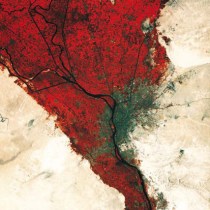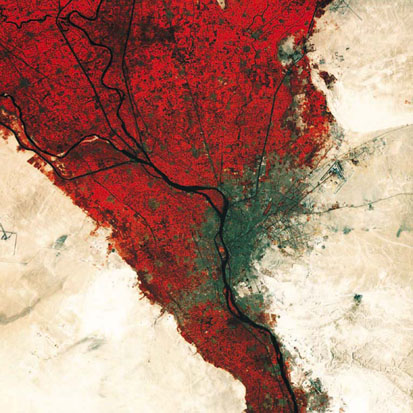
The aftermath of 2010/11’s Arab Spring revolutions had deeply mixed results for Christians across the Middle East. The political unrest (usually sparked for worthy motives) frequently suspended laws or enforcement energy that protected vulnerable churches and Christian communities.
This has been felt sharply by many Christians in Egypt, where crime has been soaring, accompanied by widespread persecution.
Over the past few weeks, grassroots political protests in Egypt have deposed President Morsi and suspended the country’s constitution. Morsi’s leanings toward fundamentalist Islam were a key reason for Christian involvement in the protests. While the change has occasioned more violence and persecution, including the killing of a Coptic priest, influential Egyptian Christians are speaking in support of the re-revolution.
Christianity Todayreports on the recent vocal support of the revolution by Egypt’s Coptic Orthodox pope Tawadros II, who tweeted on July 2nd:
“It’s wonderful to see the Egyptian people … taking back their stolen revolution in a peaceful way.”
Additionally, the president of Cairo’s Evangelical Theological Seminary Atef Gendy, supported the political action in a statement on June 30th. Gendy said:
“In the past, previous regimes pushed the Church to give them support, by controlling Christians and calling them not to oppose standing regimes. In the long run, this minimized the effective role of Christians, separating them from the rest of society and depriving them of the liberty to act independently as full, mature citizens according to their faith and conscience. Now we have learned our lesson and refuse to be a tool in the hand of any regime.
“We believe that Christians are full citizens, who have the complete right to express themselves peacefully in the way they like. Nevertheless, we call Christians and Muslims as they demonstrate to avoid all sorts of violence or destruction. We also see that religious institutions cannot dispense with their moral and prophetic responsibility in exposing mistakes and corruption. The simple requirements of the Egyptians for which they revolted over 2 years ago and are now rebelling, are fair, legal, and logical. They deserve the support of everyone and of all civil and social institutions including the religious ones.”
The question of how the Church can maintain her prophetic voice to political structures and society can be tough. When should believers pick sides? In a volatile or unpredictable political context, what’s the line between theological idealism and pragmatic realism?
I don’t pretend to understand the complexities of Christianity in modern Egypt, but as the Church there wrestles with these difficult questions of state, faith, and community, I hope to learn from them.
In a different statement, Gendy asks for prayer for Egypt and her Christians.
“Pray earnestly that the Lord may protect our nation. Each possible scenario includes elements of risk that could divide and damage the country for years.”
“Pray also for special wisdom and unity for church leaders to be able to actively participate in this critical moment of change and transformation, standing bravely against corruption and injustice without being trapped in being politically used by any party.”
More context (in am Evangelical Theology Seminary mailing) can be read here.
What does prophetic political engagement (or disengagement) look like?
EDIT: ABC has a good overview of the persecution of Christian minorities after the Arab Spring. Read it here.









